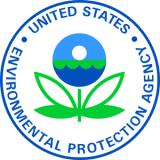EPA Honors Sprouts Farmers Market’s Food Rescue Program with National Food Recovery Challenge Award
Overland Park, Kansas, Sprouts location has almost 1,300% increase in food rescue and recovery

LENEXA, KAN. (JAN. 27, 2022) – Today, the U.S. Environmental Protection Agency (EPA) recognizes Sprouts Farmers Market’s Food Rescue Program, as one of 18 businesses and organizations honored nationally for notable achievements and innovations in EPA’s Food Recovery Challenge in 2020 and 2021.
Sprouts Farmers Market Inc. is a supermarket chain headquartered in Phoenix. Locally, their location at 95th and Nall, Overland Park, Kansas, diverted over 13 tons of food donations in 2019, a 1,273% increase in just one year.
“The EPA Food Recovery Challenge Award winners demonstrate how preventing food waste and diverting excess wholesome food away from landfills and to people is important for the environment and for communities,” said EPA Administrator Michael S. Regan. “Their accomplishments serve as excellent examples to other companies, governments, organizations and communities, particularly because food is the single largest category of waste. We have an obligation to follow the lead of our award winners, not only for the sake of 35 million food-insecure Americans, but also to prevent emissions that contribute to climate change.”
Sprouts Farmers Market has a robust Food Rescue Programwhere stores donate edible food, which is not in retail condition, to local food pantries and hunger relief agencies. Sprouts sends food that does not meet donation guidelines to local cattle farms or compost facilities. The chain uses meat rendering programs to process meat and seafood waste for more productive uses, and recycles the grease rendered from their roasted chicken program. As a company, Sprouts diverted over 22,000 tons from entering landfills through these programs.
Sprouts Farmers Market is also one of the U.S. Food Loss and Waste 2030 Champions, a group of businesses and organizations that have publicly committed to reduce food loss and waste by 50% in their own operations by the year 2030.
Through the Food Recovery Challenge (FRC), EPA has worked with organizations and businesses for the past decade to set data-driven goals, implement targeted strategies to reduce wasted food in their operations, and report results to compete for recognition.
“Community-based organizations and businesses are the lifeblood of our food recovery program,” said EPA Region 7 Administrator Meghan A. McCollister. “As we celebrate Sprouts’ successes with this award, we invite other businesses and organizations to step up and join us in this valuable community endeavor.”
“Working at Sprouts has given me a unique opportunity to interact with those serving some of the most vulnerable members of our local communities,” said Sprouts Receiving Manager Levi Young. “We have volunteers pick up donations daily so we can get food directly to struggling families and their children, which is, in my opinion, one of the most impactful things you can do to directly serve your community. I’m proud to be able to take direct action to serve our local communities on behalf of Sprouts.”
In 2020, Sprouts introduced zero waste scorecards, which allows locations to see how much food waste and recyclable materials they divert.
During 2019 and 2020, FRC national awardees implemented innovative approaches and engaged in practical, cost-effective actions and best practices to prevent and reduce wasted food. Many FRC national awardees provided much-needed food during the COVID-19 pandemic.
Nearly 600 businesses, governments and organizations actively participated in EPA’s Food Recovery Challenge in 2020-2021. Since the launch of the program in 2011, FRC partners prevented or diverted over 5.5 million tons of wasted food from entering landfills or incinerators. In the most recent reporting cycle, FRC partners prevented or diverted about 1.2 million tons of food from entering landfills or incinerators, saving partners up to $61.5 million in avoided landfill tipping fees.
Background
Each year in the United States, 73 to 152 million metric tons of food is lost or wasted during all stages of the food supply chain (from primary production to consumption), according to the EPA’s November 2021 report, From Farm to Kitchen: The Environmental Impacts of U.S. Food Waste. Food waste adversely impacts the economy, communities, and the environment by wasting the resources used to grow and transport it. Preventing food waste and keeping food and other organics out of landfills mitigates climate change, as an estimated 8% of global greenhouse gas emissions come from wasted food. At the same time, uneaten food contains enough calories to feed over 150 million people each year, far more than the 35 million estimated food-insecure Americans.
Best practices used by FRC awardees to reduce wasted food in their operations, in addition to actions taken by individuals and communities, keep wasted food from landfills. Their actions also bring the United States closer to meeting the re-aligned national goal with the United Nation’s Sustainable Development Goal Target 12.3 to cut food loss and waste in half by 2030.
Learn more about the Food Recovery Challenge national and regional awardees.
Learn more about the national food loss and waste reduction goal.
# # #
Learn more about EPA Region 7
View all Region 7 news releases
Connect with EPA Region 7 on Facebook: www.facebook.com/eparegion7
Follow us on Twitter: @EPARegion7
